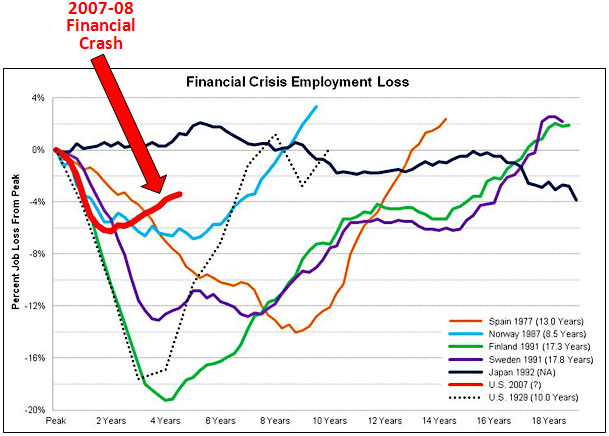Here’s an interesting chart from Josh Lerner (via Tim Duy). Instead of comparing the Great Recession to other postwar recessions in the U.S. (which have mostly been ordinary business cycle recessions), it compares the Great Recession to other financial crises. This is a better comparison since the 2007-08 crash wasn’t an ordinary business cycle recession. It was a financial crisis — and by that standard we haven’t done too badly. As Lerner says, this is almost certainly because “the strong policy response employed by nearly all major economies — both monetary and fiscal — helped stop the economic free fall.”
We could, of course, have done even more, and we still could. And should. The fact that this recession was provoked by a financial crisis is a reason to respond more strongly, not an excuse to throw up our hands and pretend that we don’t have the tools to limit the damage.














